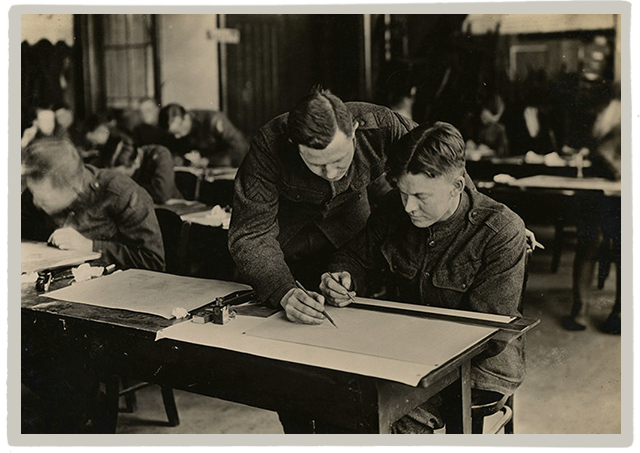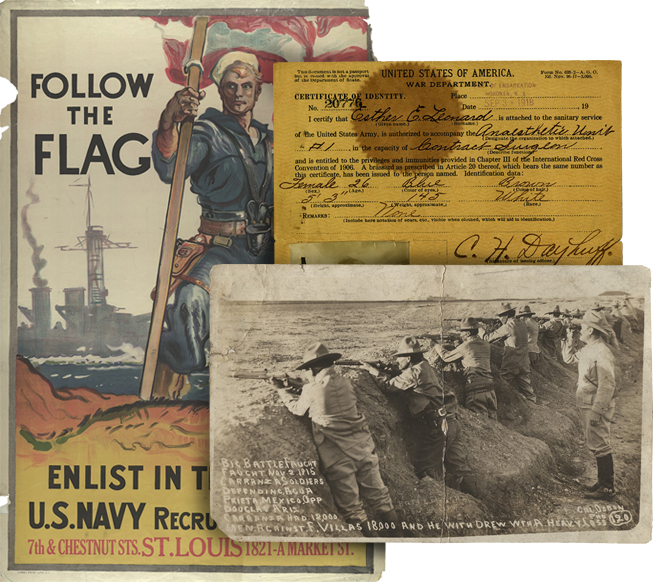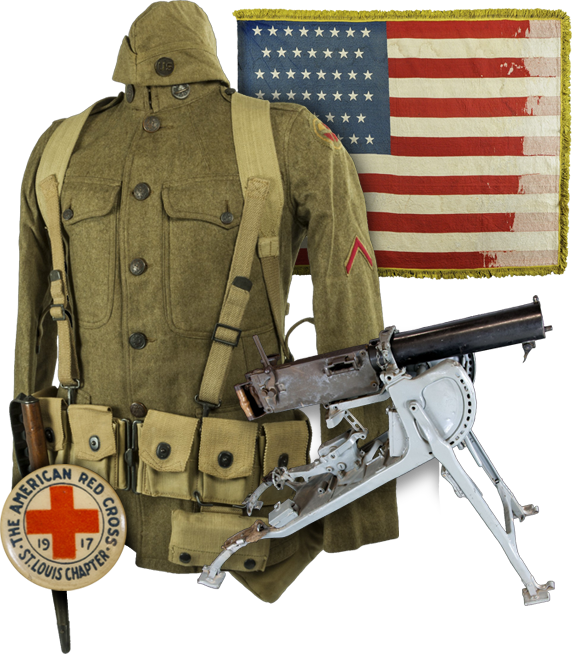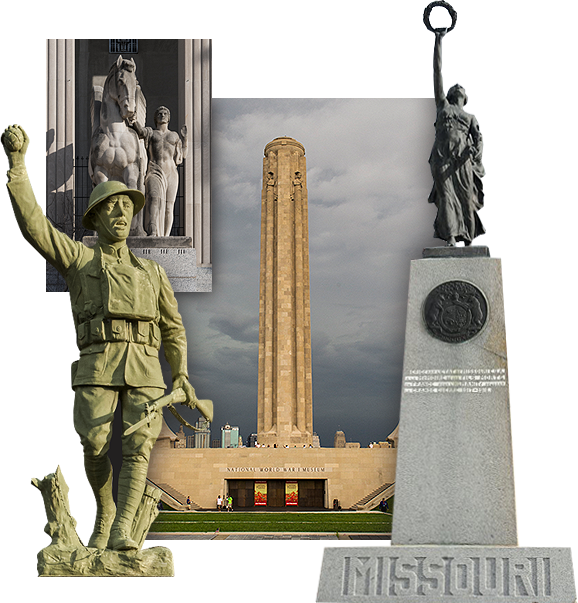Excerpts from letters of Captain John H. Thacher - May 12, 1918 - August 27, 1918

Transcript
Not for Publication November 1-1918 Dear Mr. Stout: As you have several times inquired concerning Mr. Thatcher I thought that perhaps these extract which we have made from some of his letters might be of intrest to you. The battle mentioned in Corp McDonald’s letter in today’s Star is the one referred to in Coble at End of these letters. Frank F. Rozzelle Excerpts from letters of Captain John H. Thatcher. Battery D 129 Field Artillery 35th Division. On The Way May 12 1918 Packing up harness, stenciling barrack bags, issuing first-aid kits, drawing supplies, checking in property, turning back horses to the remount station, cleaning up corrals, transferring invalids to the casualty detachment, shooing my 194 ducklings into line and counting their beaks as they waddle into the train, are my excuses for not writing sooner and thanking you all for your good and liberal gifts to the mess fund of Battery D. My thanks are none the less sincere however for being belated. That money is going to do some real good. Our men are all eager to get into the game. My top sergeant –a typical fighting temperamental Irish boy, has turned from a constitutional grouch into a grinning cheerful merry-hearted soul. Scowling conspirators have turned into upstanding soldier men and not a peep came from the whole battery when it was loaded like cattle into day coaches, three in a section. We pulled into St. Louis in the darkness and mud and rain. Out in the yards with trains and engines passing and switching it was a trying job keeping them in hand and marching them from the train threading our way through the tracks to the YMCA. There we got a bath and leg stretch for every one of them. Our engine was wrecked as we came out of the yards, but none of the men were hurt. On the Atlantic June 2 1918 About all I am permitted to say to you by the rules of the game is that we are well…. We had plenty of excitement when the time came but no one was hurt. June 26 1918 I am in the home of the Mayor of the commune and have wonderful quarters. Have breakfast at 5:30 and ride 2 miles through fields red with poppies and past rose covered little stone cots to my battery for Reveille. They are in an old abandoned chateau (plate above the door “1776” and the Latin for “here God gave us happiness”) The residence is the most ghost haunted old ruin you could imagine with old illuminated MSS and vellum books and old engravings in tumbled confusion in one small room on the second floor and my battery tumbling through the rest of its musty corners and my kitchen in what was once the grand drawing or reception room. A lawn in front where our 75’s are parked and then a little lake with long rushes in it beside which is the picket line for our fresh horses. Our billet is also in an old bowling alley at a crossroads inn known as the Silver Pot Hook where the boys of Battery D congregate from 6-9. Marvin and I mess at the same table and a Capt Truman from Grandview – a bully young chap – and Father Tiernan, a good sport, and all have as cheerful a meal as anyone would want. Somewhere in France July 20 1918 Our regiment is undergoing its last intensive work before getting shot up. Our battery came safely though from Ft Sill to France without losing a man or having any of them get in any very serious trouble. The last two days of the voyage we had some very satisfactory excitement which I cannot tell about except to say that from what I saw the submarine is pretty well under control and that I would hate to belong to an enemy submarine crew.
Description
Excepts of letters written from John H. Thacher to his law partners in Kansas City, Missouri. One of his partners, Frank Rozelle, writes to a Mr. Stout explaining that he created these excerpts from the letters he received from Thacher. Before the war, John H. Thacher worked as an attorney with the firm Rozelle, Vineyard, Thacher, and Boys. He served on the Mexican Border and was later drafted into the Federal Army as Captain of the 129th Field Artillery. After Harry S. Truman took command of the 129th Field Artillery, Thacher was appointed adjutant of the 1st Battalion of the 129th Field Artillery , and later assumed command of the 110th Ammunition Train of the 35th Division.

Transcript
[page 2] Excerpts from letters of Captain John H. Thacher. One of the most thrilling experiences was coming up the Thames just at sunset between green fields and country estates, the band playing Dixie and the Star Spangled Banner while every man, woman and child, tug-boat, ocean liner, and automobile waved and tooted a greeting to the Yanks. The Briton certainly behaved as though he were glad to see us. We were on the last big strain before we hit the front line. Working night and day. The last mess fund check reached me here. I cannot tell you all the good the money is doing but the funds are helping a whole lot to make a bunch of soldiers happy. August 10th 1918 Well I have a tin hat, canteen, mess kit, a Sam Brown belt and a gas mask, so I can reasonably feel that the government is going to have active need for my services before long. The tin hat is very becoming, but the summer styles this year are a trifle heavy in design. I am told my gas mask is even more becoming. It conceals some of the latent and many of the obvious defects in my facial architecture and discourages fluency conversation. I have to wear it every day and give orders in it and I feel more and more like killing Germans each hour I wear it. Suppose you had to look up the last decisions of our Supreme Court with a contrivance on your head that pinched your nose like a blacksmiths tongs bound your brow and chin and cheeks with an iron grip and put a contraption in your mouth like a throat specialists “Say Ah’ h” machine and then you slobber all over it and dim the goggle eyes, your gums get sore and you wish you had never loved your country at all at all. Somewhere in Somewhere, August 27. Well, we are really at the place we started for and doing the work we started to do. Behold us, then, in a little chalet high up a mountain-side, our windows looking out into the tops of pine trees, far below us in the valley a little toy village in the greenest of fields. The pine covered mountains roll up to the skies on both sides. We are with a charming French artillery man who will be our host for a few days and then will turn over his Swiss chalet to Miles and me to take command. Our boys have had their little “bapteau de feu” and nobody has been hurt and they are all in high spirits over it. We have the action that comes from the hourly whistle of little artillery pleasantries from the Boches far up the valley. People live in the village below us and women and children come and go and attend to their daily affairs and then when the whistling begins they rush to the dug-outs and cellars just like the dough boys and artillerymen. It all seems like a great night – before the fourth of July affair – this pop – pop of machine guns down over the mountain back of us and the boom of the pieces over the hills behind the “beyond”. One can not think of it as real war save for occasional little processions to the French-American cemetery in the valley below us. These processions are interrupted now and then by whistling messengers. It was very thrilling when a few days ago I crawled around a camouflaged path along the mountain and entered a dark little hole in the ground and looked out through a narrow slit and saw the trenches and the German lines for the first time, gray streaks of barbed wire and little sack-like burrows like mole hill tracings over the knob-like hills and no sign of life anywhere.
Description
Excepts of letters written from John H. Thacher to his law partners in Kansas City, Missouri. One of his partners, Frank Rozelle, writes to a Mr. Stout explaining that he created these excerpts from the letters he received from Thacher. Before the war, John H. Thacher worked as an attorney with the firm Rozelle, Vineyard, Thacher, and Boys. He served on the Mexican Border and was later drafted into the Federal Army as Captain of the 129th Field Artillery. After Harry S. Truman took command of the 129th Field Artillery, Thacher was appointed adjutant of the 1st Battalion of the 129th Field Artillery , and later assumed command of the 110th Ammunition Train of the 35th Division.
Details
| Title | Excerpts from letters of Captain John H. Thacher - May 12, 1918 - August 27, 1918 |
| Creator | Thacher, John H. |
| Source | Thacher, John H. Excerpts from letters of Captain John H. Thacher. 12 May 1918 - 27 August 1918. John H. Thacher Papers. Harry S. Truman Library and Museum, Independence, Missouri. |
| Description | Excepts of letters written from John H. Thacher to his law partners in Kansas City, Missouri. One of his partners, Frank Rozelle, writes to a Mr. Stout explaining that he created these excerpts from the letters he received from Thacher. Before the war, John H. Thacher worked as an attorney with the firm Rozelle, Vineyard, Thacher, and Boys. He served on the Mexican Border and was later drafted into the Federal Army as Captain of the 129th Field Artillery. After Harry S. Truman took command of the 129th Field Artillery, Thacher was appointed adjutant of the 1st Battalion of the 129th Field Artillery , and later assumed command of the 110th Ammunition Train of the 35th Division. |
| Contributing Institution | Harry S. Truman Library and Museum |
| Rights | Documents in this file are in the public domain. |
| Date Original | 1918 |
| Language | English |



